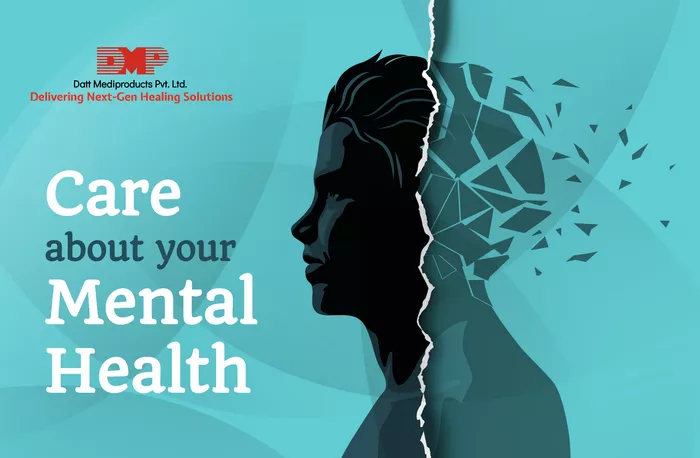Anxiety, a natural response to stress, is a common experience for many people. However, when anxiety becomes overwhelming and interferes with daily life, it can be debilitating. Fortunately, there are numerous strategies and techniques available to help manage anxiety without relying on medication. In this article, we will explore various approaches, from cognitive-behavioral therapy to lifestyle changes, and provide practical tips for coping with anxiety.
1. Validation and Understanding:
Living with anxiety can be challenging, impacting every aspect of life, from relationships to work productivity. It’s important to acknowledge the difficulties that anxiety presents and recognize that seeking help is a sign of strength, not weakness. While medication can be beneficial for some individuals, many find relief through non-medication options.
2. Exploring Anxiety Management Techniques:
Cognitive Behavioral Therapy (CBT): CBT is a widely used therapeutic approach for managing anxiety. It focuses on identifying and modifying negative thought patterns and behaviors that contribute to anxiety. By challenging irrational beliefs and learning new coping skills, individuals can effectively manage their anxiety symptoms.
Mindfulness and Meditation: Mindfulness practices involve paying attention to the present moment without judgment. Meditation, a key component of mindfulness, can help calm the mind and reduce anxiety. Research has shown that regular mindfulness practice can lead to long-term reductions in anxiety symptoms.
Relaxation Techniques: Various relaxation techniques, such as deep breathing exercises, progressive muscle relaxation, and guided imagery, can help alleviate anxiety by promoting relaxation and reducing muscle tension. These techniques are simple to learn and can be practiced anywhere, providing immediate relief during times of distress.
Lifestyle Changes:
Exercise: Regular physical activity has been shown to improve mood and reduce anxiety. Exercise stimulates the production of endorphins, chemicals in the brain that act as natural painkillers and mood elevators. Engaging in activities like walking, jogging, or yoga can be particularly beneficial for reducing anxiety symptoms.
Healthy Diet: The link between gut health and mental well-being is well-established. Consuming a balanced diet rich in fruits, vegetables, whole grains, and lean proteins can support overall mental health. Avoiding excessive caffeine, sugar, and processed foods can also help stabilize mood and reduce anxiety.
Sleep Hygiene: Quality sleep is essential for managing anxiety. Poor sleep habits, such as irregular sleep schedules or using electronic devices before bedtime, can exacerbate anxiety symptoms. Practicing good sleep hygiene, such as maintaining a consistent sleep schedule and creating a relaxing bedtime routine, can promote better sleep and reduce anxiety.
Social Support: Strong social connections are crucial for mental well-being. Spending time with supportive friends and family members can provide comfort and encouragement during difficult times. Additionally, joining support groups or seeking therapy can offer a safe space to share experiences and receive guidance from others who understand.
3. Self-Help Strategies:
In addition to professional interventions, there are several self-help strategies that individuals can incorporate into their daily lives to manage anxiety:
Journaling: Keeping a journal can help individuals process their thoughts and emotions, providing clarity and insight into their anxiety triggers.
Spending Time in Nature: Connecting with nature has been shown to reduce stress and anxiety. Spending time outdoors, whether it’s going for a walk in the park or gardening, can promote relaxation and a sense of well-being.
Engaging in Enjoyable Hobbies: Pursuing activities that bring joy and fulfillment can help distract from anxious thoughts and foster a sense of accomplishment.
4. Professional Help Resources:
While self-help strategies can be beneficial, there are times when professional help may be necessary. It’s important to seek help from therapists or counselors if anxiety is significantly impacting daily functioning or quality of life. Qualified mental health professionals can provide personalized treatment plans and support tailored to individual needs.
5. Success Stories and Inspiration:
There are countless stories of individuals who have successfully managed their anxiety without medication. By implementing a combination of therapy, lifestyle changes, and self-help strategies, many people have overcome their anxiety and regained control of their lives. It’s essential to remember that recovery is possible, and with dedication and support, anxiety can be effectively managed.
Conclusion
In conclusion, managing anxiety without medication is achievable through a combination of therapeutic interventions, lifestyle changes, and self-help strategies. By acknowledging the challenges of anxiety, seeking professional help when needed, and implementing effective coping mechanisms, individuals can find relief and regain a sense of peace and well-being in their lives.
FAQs
Can severe anxiety go away on its own?
Yes, severe anxiety can sometimes diminish over time without intervention, especially if the triggers or stressors causing it change or lessen. However, it’s advisable to seek professional help if symptoms persist or interfere with daily life.
Can you overcome anxiety without medication?
Yes, many people successfully manage and overcome anxiety without medication through various therapeutic approaches such as cognitive-behavioral therapy (CBT), mindfulness techniques, lifestyle changes, and self-help strategies. These methods can equip individuals with coping mechanisms and skills to manage anxiety effectively.
Can you fully overcome anxiety?
While complete eradication of anxiety may be unrealistic, many individuals can significantly reduce its impact on their lives through therapy, lifestyle changes, and self-care practices. Learning to manage symptoms and developing resilience can lead to a fulfilling life despite the presence of occasional anxiety.
Related topics:
- The Relationship Between Pathological Lying & Bipolar Disorder
- Understanding Depression: A Window into Invisible Pain
- The Relationship Between Gut Health & Mental Well-being


